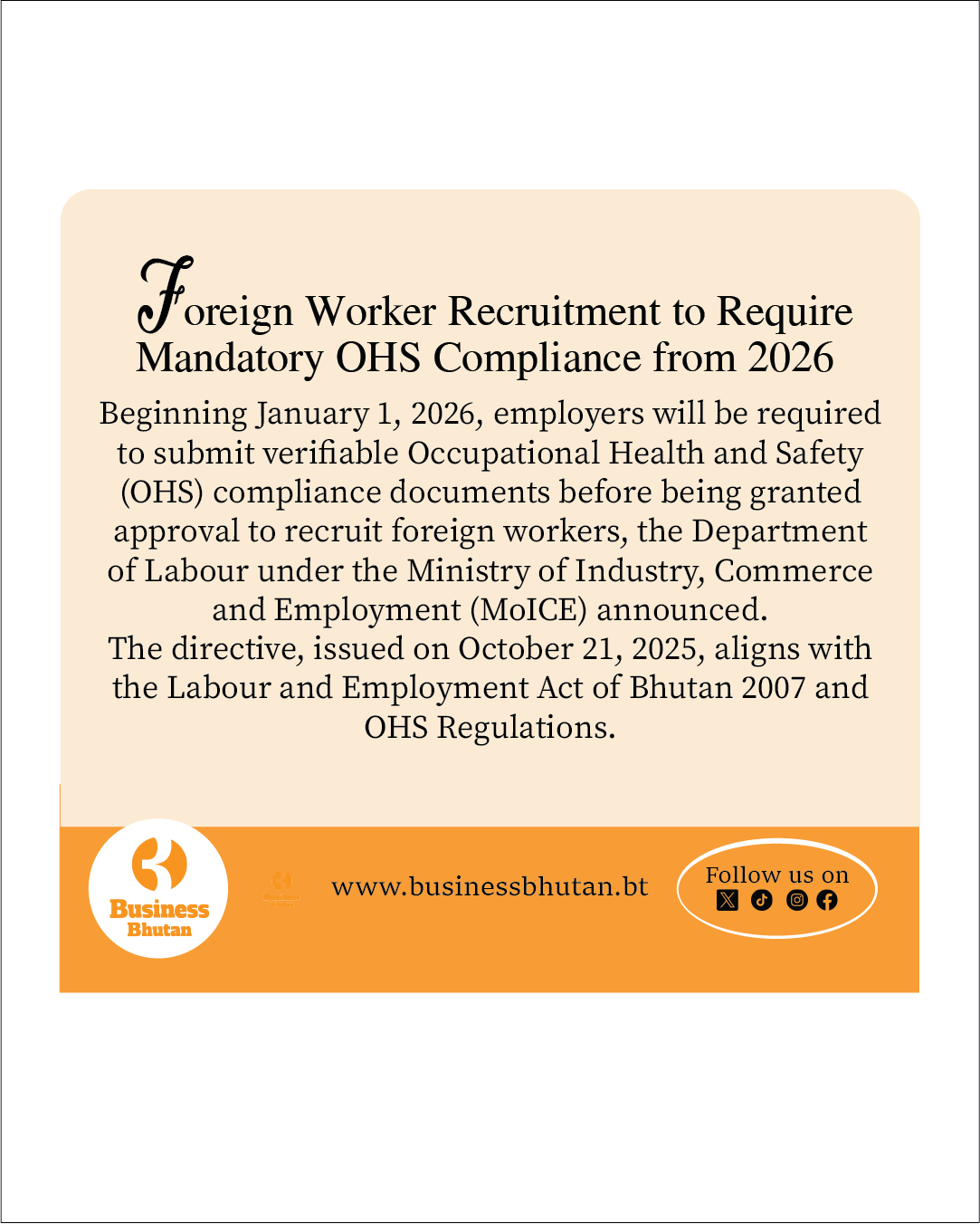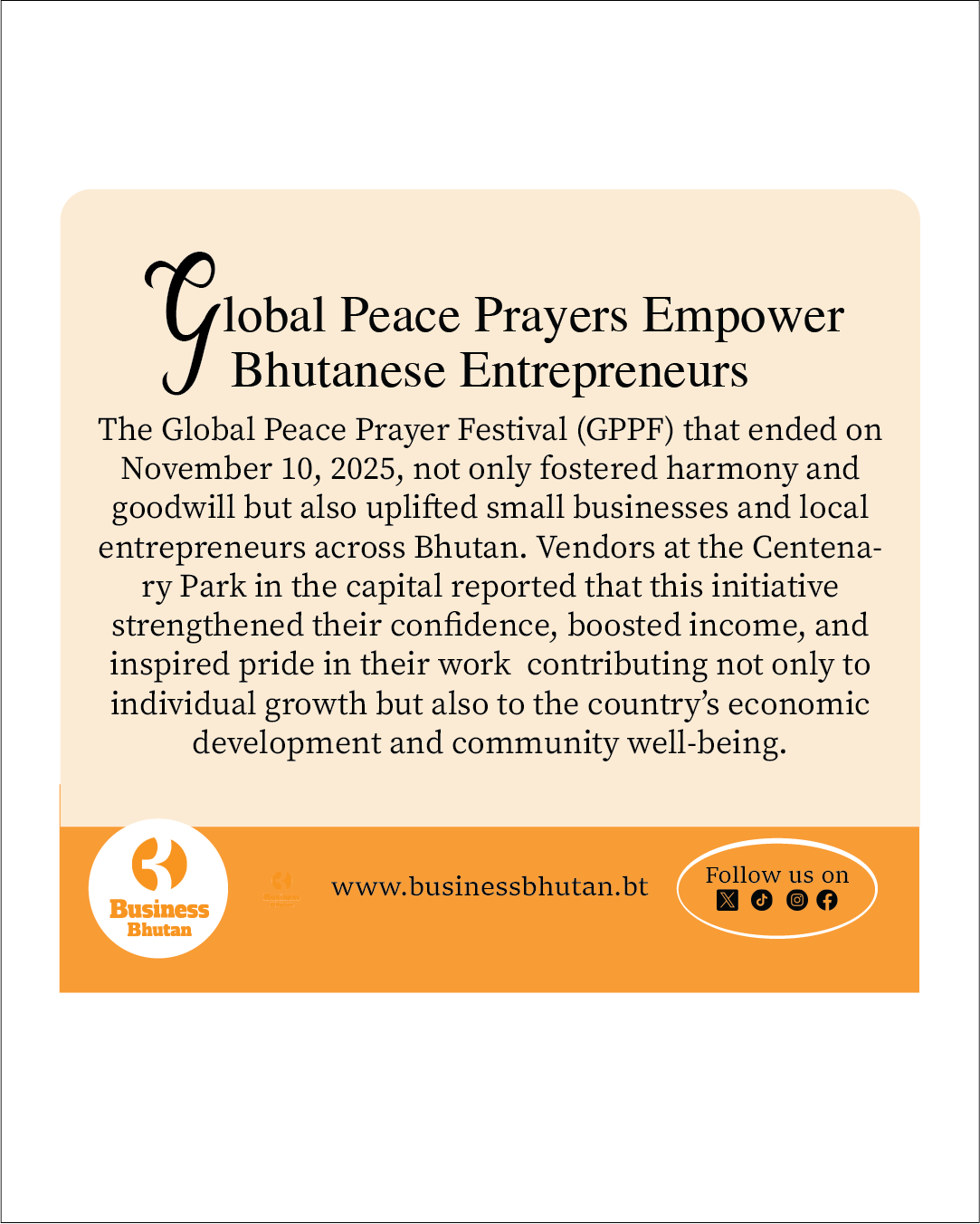Beginning January 1, 2026, employers will be required to submit verifiable Occupational Health and Safety (OHS) compliance documents before being granted approval to recruit foreign workers, the Department of Labour under the Ministry of Industry, Commerce and Employment (MoICE) announced.
The directive, issued on October 21, 2025, aligns with the Labour and Employment Act of Bhutan 2007 and OHS Regulations. The initiative aims to reinforce workplace safety standards and ensure full compliance with national labour laws prior to foreign worker engagement.
The mandatory requirement applies to all medium and large-scale establishments, including State-Owned Enterprises (SOEs), government corporations, private firms, and Non-Governmental Organisations (NGOs) with 20 or more employees. It also covers all construction companies, regardless of the number of workers or project size. Private house construction projects, however, are exempt.
To qualify for foreign worker recruitment, companies must submit proof of a functional safety committee; appointment of a trained and certified Safety Officer, registered with the Department of Labour; certificate of a registered Construction Safety Supervisor (CSS) for every project site for construction firms.
Applications lacking these documents will not be accepted or processed.
“This measure is part of Bhutan’s ongoing commitment to ensure safe and decent working environments,” the ministry stated. Employers are encouraged to begin preparations early to avoid delays when the requirement comes into force.
Alongside OHS mandates, the Department has also tightened foreign hiring in non-critical occupations, including electricians and plumbers. Approvals will only be issued when Bhutanese workers are unavailable or insufficient, or when technically complex work cannot be handled domestically.
“All foreign workers must possess relevant skills and valid certification — either from their home country or the Bhutan Qualification and Professional Certification Authority (BQPCA),” the notification reads. This is in line with Section 98 (3) and (4) of the Bhutan Building Regulation.
A ministry official explained that the policy reinforces the government’s “Bhutanese First” strategy, noting: “Foreign manpower should complement — not replace — Bhutanese employment.”
Although foreign electricians and plumbers have been categorized as “non-critical” since 2012, illegal operations continue. In October 2024, the Department penalized around 30 foreign workers illegally engaged in the trades in Thimphu.
Government records indicate strong domestic availability, with over 3,000 electricians and 1,000 plumbers trained between 2008 and 2022.
Despite this, some local contractors argue that foreign workers remain crucial — citing reliability, affordability, and finishing skills.
“Foreign workers tend to have more experience, and many Bhutanese graduates still require on-the-job training,” said a foreign contractor with more than 25 years of work experience in Bhutan.
He added that recruitment processes are strict, particularly regarding discipline and substance-free requirements.
The government says it will continue to strengthen Technical and Vocational Education and Training (TVET) to elevate local skill levels and ensure Bhutanese workers fully meet industry needs.
The latest directives underscore an effort to balance foreign workforce demand with national employment priorities — advancing the long-term goal of a skilled and self-reliant Bhutanese labour market.
Tashi Namgyal
From Thimphu















